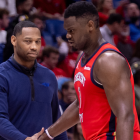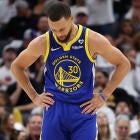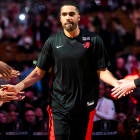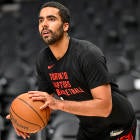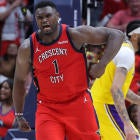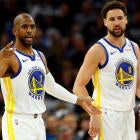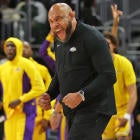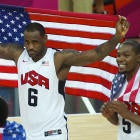SALT LAKE CITY -- The valleys along the western front of the Wasatch Range contain some of the most spectacular urban vistas in America. The long, narrow stretch of cities and towns runs 140 miles north to south and is home to 2.4 million people, more than 80 percent of the population of the state of Utah. In the middle of the Wasatch Front is Salt Lake City, where the spectacular Twin Peaks are visible to the southeast, more than two miles above sea level. When Brigham Young, the president of The Church of Jesus Christ of the Latter-Day Saints, first brought his persecuted people to this valley in 1847 and climbed up Ensign Peak to take in the view of the valley and the Great Salt Lake, he is reported to have said, "This is the right place." It is easy to imagine why.
In the middle of Salt Lake City's newly bustling downtown is the Tabernacle on Temple Square, home to the world-renowned Tabernacle Choir. Forty-four sandstone piers hold up the dome and its aluminum roof, and next to it is the six-spired Salt Lake Temple, the largest LDS temple in the world and one of Utah's biggest tourist attractions. Temple Square and the soaring peaks of nearby mountains are what outsiders think of when they think of Salt Lake City.
That soon may change, at least among basketball fans. Because three blocks from the Tabernacle is another large gathering place, called Vivint Smart Home Arena. And inside that arena is where a charismatic 22-year-old man named Donovan Mitchell is making people reconsider what they think about Utah and its capital.
On the surface, you would not think Utah to be the right place for a dynamic basketball player like Mitchell, the Utah Jazz guard who won last year's slam dunk contest before powering the Jazz to the Western Conference semifinals with one of the most memorable playoff series ever by an NBA rookie. He is the type of developing young superstar who could become one of the most recognizable, marketable personalities in the NBA. Mitchell comes from New York City, the son of the New York Mets director of player relations. His childhood was spent around the hype of Major League Baseball locker rooms in New York City and all the media attention that comes with that; even though Utah loves the Jazz and local media cover Mitchell's every move, the media attention is a fraction of what it would be in New York. His childhood cityscape views were of endless skyscrapers, not endless mountain peaks. He spent his summers during high school and between his two collegiate seasons at Louisville hopping on the train and playing in street-ball games at the famed Rucker Park. A dunk he had at an Under Armour-sponsored event in Brooklyn while he was in high school became legendary, and was featured on SportsCenter that night.
Needless to say, Salt Lake City does not have a Rucker Park.
Yet a deeper look at both Mitchell and at Salt Lake City shows a match between a small-market city and a big-market talent that feels close to ideal. Both are perpetual underdogs who have recently undergone a meteoric rise. Salt Lake City is often overlooked by the bicoastal mentality of the national media, yet the downtown has undergone a recent renaissance. The total property value in downtown Salt Lake has more than doubled over the past five years, to $72 billion, as some 8,000 new jobs have been created in downtown alone.
The surrounding tech community -- the so-called Silicon Slopes between Provo and Salt Lake City, which used to be home to a state prison and farmland and little else -- is one of the nation's emerging technology hubs; four Silicon Slopes tech companies have gone public in 2018 alone. Yet they've done so on their own, without the typical Silicon Valley/Ivy League cred. As Todd Pedersen, the CEO of Vivint Smart Home, the Utah company acquired for more than $2 billion in 2012, told me, "I don't think any of the guys went to Stanford or Harvard. It's a scrappy tech community, just like this team."
The rise of an unlikely star
As for Mitchell, the overachieving underdog? Nobody ever thought he'd be an instant NBA star. Not even Mitchell. Until halfway through high school, he didn't even expect to pursue basketball as a career; he was a baseball player, en route to the majors, until a broken wrist suffered in a baseball game made him reevaluate life. He wasn't a top-level basketball recruit -- one recruiting service ranked him 27th in the country, another ranked him 43rd.
I asked Mitchell why, and he displayed honesty and humility: "I sucked. To be honest with you, I just wasn't good. Couldn't shoot. And I wasn't really focused on basketball," he said. He wasn't named a McDonald's All-American, and he was only invited to play in the regional game for the Jordan Brand Classic, another high-school all-star game. (He took it as an affront, and he won MVP of that game.) He only started five games as a freshman at Louisville. It's unfathomable to think, considering Mitchell ended up being the 13th pick in the 2017 draft and then nearly thieving the Rookie of the Year award away from Ben Simmons, that he spent much of the spring of 2017 considering returning to college for a junior year until Chris Paul talked some sense into him.
"The ethos of Utah is kind of the bootstrap mentality, us against the world -- 'We're going to build this thing and we don't care how long it takes,'" Clint Betts, the executive director of Silicon Slopes, said with only a hint of hyperbole. "This is the most beloved Utahn in the history of the state -- already, one year in! We already call him a Utahn! I was here for [John] Stockton and [Karl] Malone. We loved those guys. But he's already surpassed Stockton and Malone in the way he's beloved by this state. And it's because he has embraced this state -- because he loves us."

As certain superstars have shown us -- players with magnetic skills and personalities like Russell Westbrook in Oklahoma City or Damian Lillard in Portland, Anthony Davis in New Orleans or Giannis Antetokounmpo in Milwaukee -- NBA players can transcend the size of the market where they call home. It's like what Aaron Rodgers has been able to do in Green Bay, or what Peyton Manning did in Indianapolis, but more so, because NBA players are more relatable and often have longer careers. In the NBA, you don't have to play in New York or Los Angeles to be treated as one of the top superstars in the league.
Mitchell recognizes this, and he loves it. He's able to enjoy the fruits of fame and stardom in Salt Lake City in a way that he couldn't in New York or Los Angeles.
"It would be totally different," Mitchell told me. "It wouldn't be something I would look forward to. It'd be tough to be who I am, to go out and walk around. What's special about Salt Lake, it's a small, tight-knit, close community. I'm not here to be a big-market guy. That's not what I am. I've never been the top dog. I've always been the underdog. And that's why I relate so much to Utah, because we're underdogs, we're overlooked, kind of thought of as an afterthought. So when you come in and play us and we work hard, it's like, oh – that's when we hit you."
You'd never think it would work like this, the city kid finding his perfect home in a mountain valley. But now, it feels abundantly obvious that the Jazz are the perfect match for an unlikely star like Mitchell -- after all, it's a team filled with castoffs and underdogs, from Rudy Gobert to Georges Niang, from Jae Crowder to Royce O'Neale -- and that Salt Lake City has the perfect mentality to fit the young star.
As Derek Miller, the president and CEO of the Salt Lake Chamber, told me, "Don't ever underestimate the power of an inferiority complex."
Mitchell well-rounded for a reason
When Donovan Mitchell was growing up, he wanted to play Major League Baseball. He was a star shortstop, a superior athlete and an all-tools type of player, and some of the best days of his childhood were when his father took him to the Mets' clubhouse to hang out with the players. Scott Kazmir was a star pitcher in the Mets' minor-league system, and the young player Mitchell felt closest to; Kazmir also had been a two-sport star in growing up, and Mitchell thought he was just an all-around nice guy. When Kazmir was traded, Mitchell was seven years old. Mitchell cried and cried and cried.
After that, David Wright, who played for the Mets from 2004 until his recent retirement, became the player Mitchell most looked up to. What Mitchell noticed was that, even though Wright was a star who signed a contract worth $138 million, he always signed autographs for kids. He always paused to take a photo with fans. Mitchell loved it when Wright let him hold his cleats in the locker room: "It made my day," he recalled. Mitchell wanted to be like that: Not just the baseball star, but that type of baseball star. A David Wright poster was the first Mitchell hung on his wall as a kid.
So if you're looking for a reason why Mitchell does things like drop by a fan's house for a July 4 barbecue, or why he shows up at a local high school's pep rally, or why he asks a young fan in the stands in Boston to rebound for him after spotting the youngster wear his jersey, it's because of those days he spent around the Mets. That's what made him recognize the difference between a superstar athlete who is a good guy -- David Wright -- and a superstar athlete who is not.
But if you're looking for a reason why Mitchell remains so grounded despite his meteoric rise to fame, or why he seems like such a damn authentic human being, people who've known Donovan Mitchell since before he became an NBA star always point to his mother.
She sent him to Greenwich Country Day School in Connecticut for middle school and then Brewster Academy in New Hampshire for high school. True, Brewster Academy also had a nationally prominent basketball program. But for Nicole Mitchell, basketball was far from the point. The point was to make him a well-rounded man, not a one-dimensional athlete.
"I missed a few key basketball games, AAU games, because I didn't finish my homework," Mitchell said. "I missed some big tournaments. I missed big tournaments because I had to do a project, had to finish it -- and she knew I wouldn't finish it after the game. That pissed me off, pissed my coaches off, but they understood that that was what we were about. I missed games to go be in concerts -- I played the drums. My mom was not always into just basketball. In today's generation kids start so early they lose track of being a child. She kept me being a kid."
Yet a kid who is a superior athlete can often get too full of himself. That's what happened with Mitchell by the time he was a sophomore in high school. "I'm it" -- that's the way he thought. His mother noticed that he was putting sports before school. She noticed that he'd rest up for baseball games or basketball games instead of focusing on classwork. She told him that sports would run out eventually, and that he needed to prepare for that. Mitchell ignored her. "And then she told me that God would humble me," Mitchell recalled. One week after his mother told him that, Mitchell was playing in a baseball game when he dashed toward a pop-up in the infield. He collided with the catcher, breaking the catcher's jaw and his own wrist. His baseball season was over, and so was his upcoming AAU season.
But that freak injury changed him -- not just Donovan Mitchell the athlete but Donovan Mitchell the person. He stopped playing baseball to focus on basketball. He realized athletic success is earned, not given: "That's what pulled up that dog inside of me," Mitchell said. He transferred to Brewster, a small, diverse and unique school with 300-some students, a six-to-one teacher-to-student ratio and a tuition that approaches $60,000 a year. He hated it at first. He missed the city. He missed his friends.
But soon he realized this place would expand his horizons. Friends' parents were on Forbes lists of the country's richest people. "Now I have friends at Yale, Harvard, Columbia, Penn," Mitchell told me. "Yeah, I'm the NBA player, but when I'm done, the way we are, we forget these things: 'You played, but that's it.'" What jumped out to his coaches and teachers had nothing to do with his high-flying dunks but instead his one-of-a-kind authenticity.
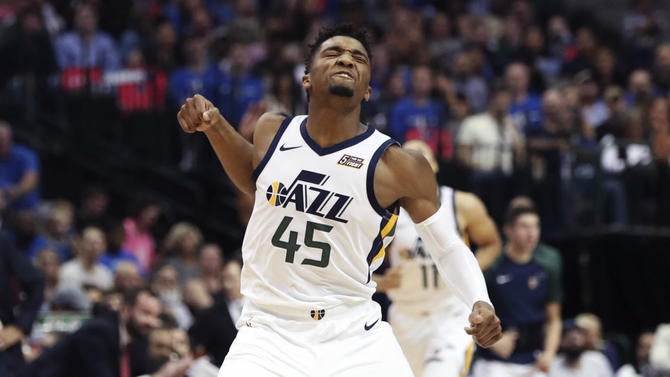
That's the first thing Brewster basketball coach Jason Smith noticed about Mitchell. A spot opened up on his team a few weeks before school was to begin, and a college coach Smith knew recommended he look at Mitchell. Smith hadn't seen him play -- Mitchell had just finished rehabbing from his broken wrist -- but he heard Mitchell was a good kid. "I spent three-plus hours with him and mom that day, and I knew he's someone I want in this community," Smith said. "Those are the types of guys I want because there's no sense of entitlement, no feeling that they've already arrived. They're hungry and motivated, with a chip on shoulder. He hadn't been anointed from the time he was 12 to be the next great thing."
That's what they got: A star athlete who was a student -- a person -- first. The eye-popping moments with his dunks would come soon enough. The very first open gym at Brewster where college coaches were invited, Mitchell was warming up and threw down a vicious dunk. Syracuse head coach Jim Boeheim and a half-dozen other college coaches stopped and stared. Their disbelieving expressions said it all: "Who is that?"
At the end of his junior year, he ran for senior prefect -- similar to class president -- and he won. That's typically a job reserved for students who've been at Brewster since ninth grade, but classmates took an instant liking to Mitchell. He was in the school musical. He met with the headmaster frequently in his role as prefect. He gave tours to visiting students -- and not just basketball recruits -- in his role in the Gold Key Club.
Oh, and he won two prep school national championships for the basketball team.
T.J. Palmer, who taught Mitchell in an American history class, says he's the type of guy he'd want to date his daughter. It's because of his honesty, his authenticity, his plain-old decency that struck his teachers as much as it has struck the fan base of the Utah Jazz. When Mitchell turned in a subpar essay for Palmer's class, Palmer handed it back to Mitchell and told him it wasn't good enough -- that it wasn't up to Mitchell's standard. Instead of complaining, Mitchell admitted he fell short. "It's a rare kid who admits it, who doesn't make excuses," Palmer said, "and an even more rare kid who says, 'What do I need to do?' He's extremely coachable."
When he got to Louisville, there was the same adjustment period as when he got to Brewster. His jump shot didn't seem like that of a future NBA player -- too flat, without the proper arc. He didn't feel like he belonged as a Division I player. He thought about quitting. His mother made the 14-hour drive to Louisville to lift his spirits, and Mitchell spent hours upon hours in the gym, working on that shot. "I swear it was the blink of an eye," David Padgett, who coached Mitchell at Louisville, told me. "It was like a month or two later, and he'd spent so much time in gym that he's shooting 60 or 70 percent in workouts, and he had this confidence in his jump shot that he didn't have earlier."
Mitchell declared for the draft after his sophomore year. He went to the NBA combine and impressed, yet the feeling lingered that he was undersized -- a tweener at best in the NBA. He flew to Utah to work out for the Jazz. Before he visited, he didn't want to go there. He didn't know anything about Utah. Plus, the Jazz were picking 24th, and he wanted to go higher.
Then his flight landed in Salt Lake City, and the place wowed him.
"I called my agent when I first came here, and I said, 'Man, this place is beautiful,'" Mitchell said. "I've never been one for scenery. I've always been used to skyscrapers. I didn't want to go see mountainous areas as a kid -- I wanted to be around town, around New York, around Connecticut. When I came here that was my first time really seeing mountains. It's peaceful. It's quiet. It's so much of what I'd never seen before. I'll just drive up as high as I can and look down."
Having been around the New York vibe his whole life, the Utah vibe was a pleasant surprise. The first person who said hello to him was a woman named Bernie, who makes the smoothies at the practice facility. The front office was nice. The media was nice. This was … different.
On draft night, the Jazz -- the franchise that in just a couple weeks would feel jilted and wronged when their star player, Gordon Hayward, would sign with the Boston Celtics -- traded up and snagged Mitchell at 13.
Nobody could have had any idea at the time how quickly Mitchell would take off.
Utah and all its uniqueness
The story of how Salt Lake City and the surrounding tech community has taken off is one that's fairly recent, but whose origin goes back to the earliest days of Utah's settlers, when a certain mentality rooted itself in the valleys of the Wasatch Front.
You can't tell the story of Utah without talking about the LDS Church. And one way to explain how Utah developed such a vibrant tech community despite not being in Silicon Valley is that the state has a similar entrepreneurial spirit as Silicon Valley. Like Silicon Valley, Utah is imbued with the belief that one person can build a company that changes the world. After all, one person built this religion that shaped Utah.
"Part of it is the ethos of Utahns to just make it on your own," said Betts, the executive director of Silicon Slopes. "The founders of the church were kicked out of Missouri and forced out west, and forced to build things on their own. So there's always been this mentality of us against the world."
As the personal computing revolution was taking off in the 1980s and early 1990s, it was clustered outside of San Francisco in Silicon Valley. But Utah had its own tech revolution brewing. The Utah tech seed was planted with WordPerfect and Novell in 1979 then grew during a second wave in the 1990s, based off of the founding of Omniture, which was acquired by Adobe in 2009 for $1.8 billion. That led Adobe to establish a permanent presence in Utah; the company is currently building a second office for 1,000 new employees. During that same period, the 2002 Winter Olympics upped the hip factor of Utah on the world stage.
Utah's in the midst of its third tech wave now. Four Utah tech startups have filed for initial public offerings this year alone. Betts told me he expects three or four more Utah tech companies to go public in 2019.
"When the pioneers got here and found one single tree and one single creek, they thought, 'This will take a lot of hard work, and a lot of hard working together,' " said Miller, the head of the local chamber of commerce. "That's what makes our DNA."
Which brings us to Utah's favorite sports franchise. What made Stockton and Malone fit here so well wasn't that they took the Jazz to their first NBA Finals (though that certainly helped). It was that they reflected this place. Stockton was an iron man, the Cal Ripken of the NBA, while Malone's work ethic was legendary; if he didn't feel that he got enough of a workout during a game, he'd head straight to the weight room afterwards.
"We always wondered, 'Boy, will we ever get that again?'" Miller said. "Was that just once in a lifetime? And then we get this current formulation of Donovan Mitchell and Rudy Gobert, and both fit in so well with this Utah DNA. You work hard, but it's about the team. We're a small state, an underdog in every way. So when we find someone who fits into our culture and then who also happens to really likes it, it's like Sally Fields at the Academy Awards: 'They like me! They really like me!'"
Embracing Mitchell, the star and the person
Jackie Biskupski made headlines as Salt Lake City's first openly gay mayor. More to the point of this story, she has an 8-year-old son named Archie. Archie is African-American, and he is a huge Donovan Mitchell fan. He has a poster of Mitchell in his bedroom. He got a Mitchell jersey in the next size up so he wouldn't grow out of it too soon. He even cut his hair in the Mitchell style: shaved on the sides, with twists on top. It's not just that Mitchell throws down dunks that Archie has to show his mom highlights of; it's that Mitchell is out in the community and never holds himself above people.
"For him, Donovan Mitchell is the person you want to be when you grow up: kind, driven, an everyday person," Biskupski said.
The first time he saw Mitchell play, Jazz general manager Dennis Lindsey had no idea about Donovan Mitchell the person. Lindsey only knew that his son's collegiate team, the Baylor Bears, had organized their entire game plan around Mitchell when Baylor faced Louisville at the finals for the Battle 4 Atlantis in the Bahamas in 2016. (Baylor came back from 22 down to win, which Lindsey still teases Mitchell about.)
When Mitchell sat for a predraft interview with the Jazz the spring of 2017, Lindsey had a general idea of who he was: An incredible athlete who was still a raw basketball player, someone whose body and style was reminiscent of Dwyane Wade, someone who Lindsey thought could excel in a Grant Hill-like role playing both guard positions, and a player who like Steph Curry was a late bloomer -- Curry physically, Mitchell from a skills standpoint. Most importantly, he was a good kid and a hard worker who came from great parents.
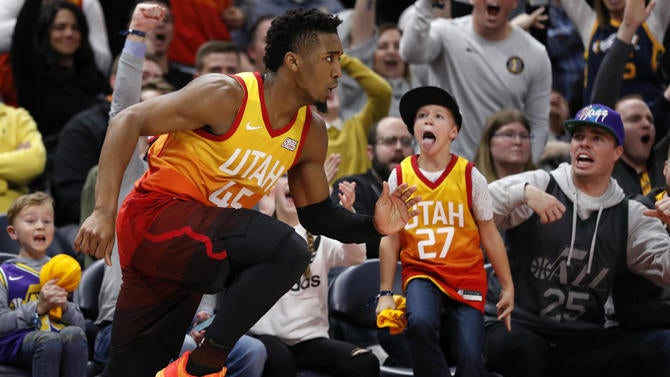
"There was no way to know he'd be as polished as he was as a person and as a speaker," Lindsey told me. "The well-put-together kids are the toughest interviews. There's a chip in the armor somewhere. I try to find that in an interview. And he was picking up on that. He was a step ahead on the questions. You can ask a leading question and see if he throws a teammate or a coach under the bus – that's material to us. It speaks to how someone thinks.
"It was clear that as soon as we cleaned up a few things skill-set-wise, that his natural athletic talent plus his charisma, his character -- an NBA locker room would accept him," Lindsey continued. "It's a needle in a haystack to find a truly great talent that separates themselves from NBA players. It's exponentially harder to find someone with good character. That's how Houston built a great program around Hakeem, and how San Antonio built a great program around Tim [Duncan], Tony [Parker] and Manu [Ginobili]."
This is incredibly high praise, clearly. And so far this season, Mitchell's had his ups and downs in dealing with his suddenly high expectations, as have the Jazz. The Jazz have a target on their backs in a way they didn't last year; they've struggled out of the gate with their difficult schedule. They have a 12-13 record and are in 11th place in the West -- but are only 3.5 games back of the fifth-place Los Angeles Lakers in the bunched-up West. Mitchell has struggled individually as well, with nagging injuries as well as with being the go-to guy on a team with expectations.
While his numbers are virtually identical to a year ago (with slightly worse efficiency), it's one thing when you're the rookie to come out of nowhere to become a budding superstar within a few months. It's another thing when you have an offseason of hype and expectation building up. The Jazz play the Houston Rockets on Thursday night (10:30 p.m. ET, TNT -- stream on fuboTV with a free trial here), a rematch against the team that eliminated them from the playoffs last season.
The low point of this year, one would hope, came in a very un-Donovan-Mitchell-like game in mid-November, when he hoisted 35 shots while netting zero assists in a loss to the Philadelphia 76ers. "That's not who I am," Mitchell told reporters after the game.
And it's not. Mitchell's high school coach told me about Mitchell's final game for Brewster Academy. It was the prep school national championship game, and Mitchell didn't have it. His coach remembers him scoring four or five points all game -- but getting after it on defense, netting five or six steals, and dishing the ball to his teammates. They won, and that was what mattered.
There's another good thing about Mitchell being in Salt Lake. Here, his career can be nurtured in a way it would not in New York or Los Angeles. Sure, there's still pressure to win in this basketball-obsessed town. And there still are questions when Mitchell is slumping, or when the Jazz are slumping, which they had been until recently, when they won three of their past four games. But when things are going poorly here, there's a way that this community lifts you up. You never get too low. Just like when things are going great, this community has a way of keeping you level-headed -- of not letting that fame get out of control. Donovan Mitchell loves Utah, and Utah loves him back.
I recently asked Mitchell about how he's handled this instant fame -- going from a guy who 18 months ago was considering returning for one more year in college to a guy who could become one of the emerging NBA stars.
"It's easy now, easier than if I were in a bigger market," Mitchell told me. "It's a lot easier because you don't have TMZ following you when you go to dinner. I can go eat down the road and be fine. That's why I love Salt Lake. They're the nicest fans I've ever met. It's easy for fans to disturb me in the middle of meals. In Salt Lake, they actually wait! That doesn't happen everywhere. I go back home in New York, it doesn't matter what I'm doing, they're running up to me, trying to get whatever it may be. Here, they're really thoughtful with their approach. And I respect that. That's why I'm so willing to give back. If I do sign something, it's like, 'OK, let's let him go, let's give him his time, let's give him his space.' I never heard that growing up around the Mets organization. It's always, 'I want, I want, I want, I want.' It's never, 'Let's give him his space.' I respect the people of Salt Lake for that."
















